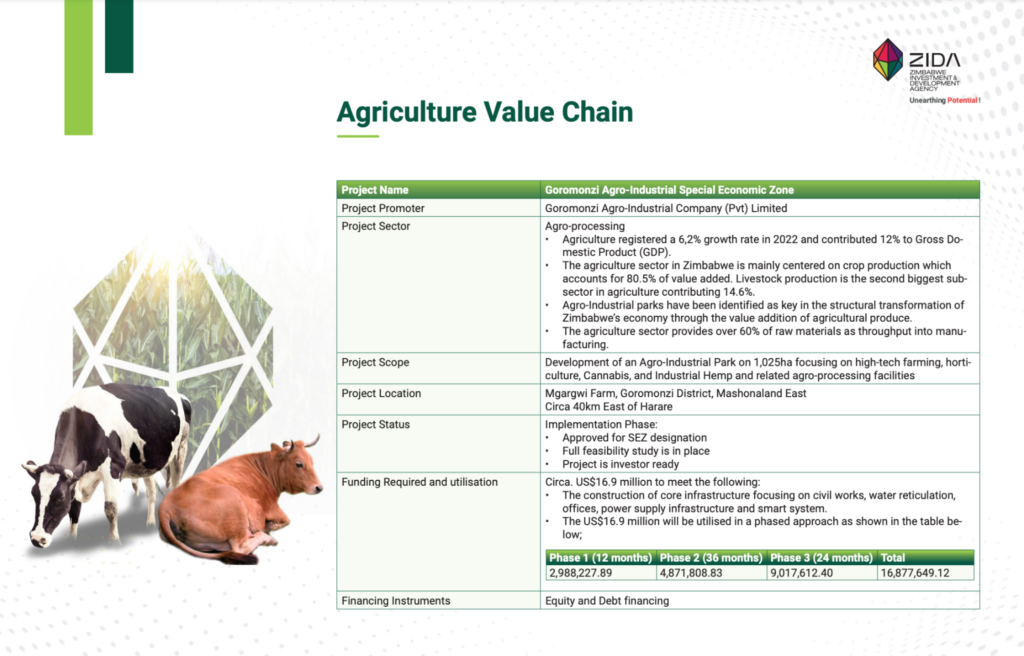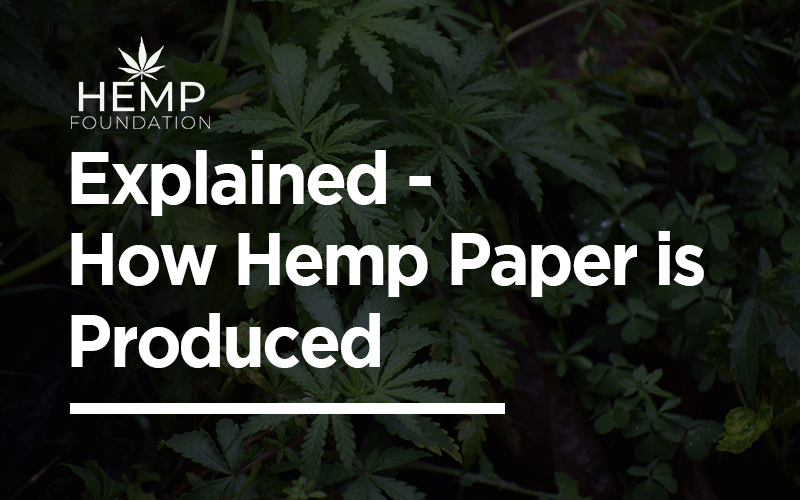The Goromonzi Agro-Industrial Park’s Hemp Focus: Transforming Zimbabwe’s Agriculture
Goromonzi Agro-Industrial Park, Zimbabwe, is set to go live with an investment capture of $16.9 million. The investment aims not only to improve the agricultural sector but to also enhance the production of industrial cannabis and hemp within Zimbabwe.
The Goromonzi development has received approval from the government to operate in a Special Economic Zone (SEZ). With this status, the aim shifts to adopting best farming practices, establishing agro-processing plants, and growing high-value crops. The project strives to achieve economic growth while creating new job opportunities. Key functions within the park will include growing industrial cannabis and hemp, high-tech horticulture, and farming.


To achieve set goals, the strategy will be broken down into three phases. The investments needed for each of the phases are $2.99 million, $4.87 million, and $9.02 million – all of which are achievable over six years.
By integrating the cultivation of industrial cannabis and hemp within the fraternity, Zimbabwe stands to gain access to the rapidly growing global market for hemp-based goods, including textiles, bioplastics, and medicine.
Goromonzi is in the next phase of development and has already put all the necessary groundwork into motion. The project is currently undergoing its implementation phase, construction planning stage, and capital increase to full-scale production. New hurdles such as the lack of available seeds, high production overheads, and marketing inhibitors are the new challenges the country faces alongside the industrial hemp regulations enacted in 2019.
As a result of these problems, some farmers are not able to fulfil previously made export arrangements. This has caused interruptions. The elevated production prices are also because there are no local seeds, making farmers use costly imports.
To boost the sector, steps to broaden the scope of hemp products like cigarettes and CBD oil are very important. In 2019, the Zimbabwean government took advanced measures to legalize hemp by legalizing industrial hemp, followed by its entry into the domestic CBD markets in 2020. The legal distinction between hemp and marijuana was further established with the amendment of the Criminal Law Bill in 2022. This provided hemp producers more assurance. Nonetheless, some experts express concern over the slow pace of progress integration due to the lack of effort placed in developing appropriate hemp varieties to suit Zimbabwe’s growing environmental conditions.
To take advantage of the ‘untapped’ potential of hemp, advocates are calling for more focus on what lies beyond CBD. There are much broader uses of hemp in food, fibre, and industrial products that are currently being identified.
Vishal Vivek
Vishal Vivek is the Founder and CEO of Ukhi, a pioneering bio-materials company dedicated to ending plastic pollution by converting agricultural waste into high-performance compostable polymers. With a background in sustainable entrepreneurship and over a decade of technology experience, he leads Ukhi’s vision to create scalable, planet-positive material solutions. Previously, Vishal founded the Hemp Foundation, where he empowered more than 1,000 farmers and advanced sustainable livelihood initiatives. His work has been recognized through awards such as the HDFC Parivartan Grant and featured in leading publications like Forbes and Entrepreneur. Times Group recognized him as a legendary entrepreneur and published his biography in “I Did IT- Vol 2” alongside social pioneers like Bindeshwar Pathak (Sulabh International) and Anshu Gupta (Goonj). Vishal has authored more than 200 articles on sustainability and hemp, reflecting his deep expertise and advocacy for regenerative solutions. His commitment to grassroots impact led him to live in the remote mountains of Uttarakhand, where he immersed himself in the lives of marginal farmers, understanding their challenges and co-creating economic opportunities through hemp-based initiatives. A deeply passionate innovator, Vishal often draws inspiration from seemingly impossible achievements: “If Elon Musk can make rockets reusable, or Dashrath Manjhi can carve a path through a mountain with rudimentary tools, why can’t we eliminate the demon of single-use plastic while uplifting struggling farmers? We will make it happen—whatever it takes.” Ukhi is proud to be supported by premier institutions including IIT Guwahati, NSRCEL-IIM Bangalore, Indian School of Business (Hyderabad), Indian Council of Agricultural Research (ICAR Pusa), and the Indian Institute of Packaging. Vishal is committed to demonstrating that business can be a powerful catalyst for global environmental and social good. Connect with Vishal Vivek
Related Posts
Warehouses Are Switching to Hemp Stretch Film – Here’s Why
Warehousing is something we, regular civilians, are so far removed from that we don’t realise what
Why Royal Society President is Urging People to Wear Face Mask
“A Face mask is the biggest weapon in fighting against the novel coronavirus and no one should
Explained – How Hemp Paper is Produced
[vc_row][vc_column][vc_column_text]Paper produced entirely or mostly from the fibers of the hemp pla




